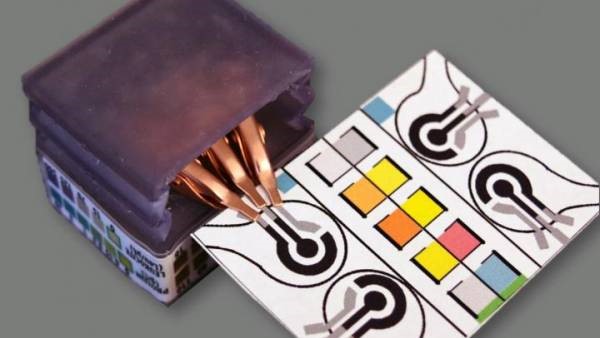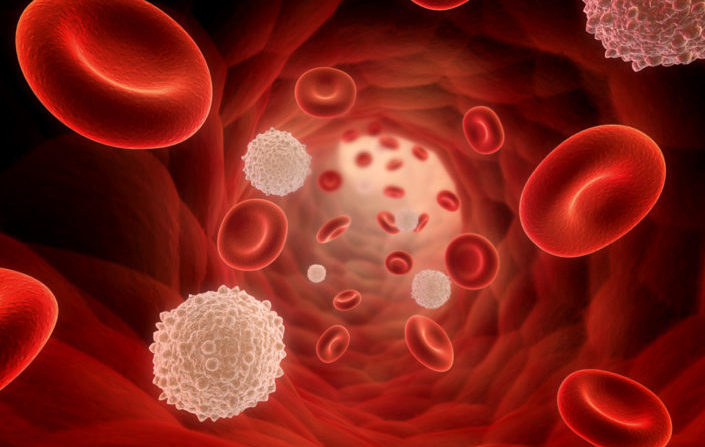Research in materials science has progressed far enough to develop a new inexpensive, portable and disposable diagnostic device. Just like the lab-on-a-chip technology has gained popularity, paper-based electrochemical devices (PEDs) have attracted increasing attention to detect and quantify a wide variety of biomarker analytes such as proteins, metabolites, nucleic acids, metal ions etc.


The SPED detects biomarkers and identifies diseases by performing electrochemical analyses, and the assays change color to indicate specific test results. The device can plug into a handheld potentiostat, at left, to automate the diagnostic tests so that they can be performed by untrained users.
(Source: https://news.uns.purdue.edu/images/2017/martinez-potentiostatLO.jpg)
Scientists at the Purdue University in the US have built self-powered, paper-based electrochemical devices (SPEDs) that can provide sensitive diagnostics to patients at the “point-of-care,” which is when care is delivered to patients. It can be powered-up just by rubbing or pressing it and is designed for regions where the public has limited access to resources or required medical technology. The diagnosis is performed by placing a pinprick of blood in a circular feature on the device, which is less than two-inches of a square. However, SPEDs also contain “self-pipetting test zones” that can be dipped into a sample instead of using the finger-prick test. The top layer of the SPED is made using untreated cellulose paper that can wick up blood samples for testing. There are accurate assays that change color to indicate specific testing results.
The bottom layer of the SPED is a “triboelectric generator,” or TEG, which generates an electric current required to run the diagnostic test, simply from the friction by rubbing or pressing it. The researchers also included an inexpensive handheld potentiostat, which is easily plugged into the SPED to automate the diagnostic tests so that they can be performed by untrained users. The battery powering the potentiostat can be recharged using the TEG built into the SPEDs.
“SPEDs are inexpensive, lightweight, flexible and easy to use,” said Ramses V. Martinez, an assistant professor at the Purdue University. “You could consider this a portable laboratory that is just completely made out of paper, is inexpensive and can be disposed of through incineration. We hope these devices will serve untrained people located in remote villages or military bases to test for a variety of diseases without requiring any source of electricity, clean water, or additional equipment.”
The device detects biomarkers and identifies diseases by performing electrochemical analyses and reads out the color-coded test results, making it easy for non-experts to understand. Researchers used SPEDs to detect biomarkers such as glucose, uric acid, L-lactate, ketones, and white blood cells, which indicate issues related to liver and kidney function, malnutrition, and anemia.
Electrochemistry has constantly provided simple and portable techniques to analyze small molecules in complex biological environments with a high degree of specificity and selectivity, at a moderate cost. This new technology has great potential as a rapid, portable and overall convenient diagnostic test. A machine-vision diagnostic application was also developed to automatically identify and quantify each of the colorimetric tests, from a photograph taken of the SPED test, in order to provide fast diagnostic results to the user as well as to enable remote expert consultation and medical prescription.
References:
1] Pal, A., Cuellar, H. E., Kuang, R., Caurin, H. F., Goswami, D., & Martinez, R. V. (2017). Self‐Powered, Paper‐Based Electrochemical Devices for Sensitive Point‐of‐Care Testing. Advanced Materials Technologies.
2] https://www.purdue.edu/newsroom/releases/2017/Q3/self-powered-paper-based-speds-may-lead-to-new-medical-diagnostic-tools.html










